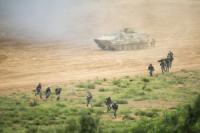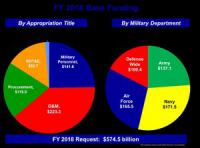-
Cities can save lives, resources by using a vulnerability reduction scorecard
A new planning tool enables communities to effectively reduce their vulnerabilities to hazards across their network of plans – including transportation, parks, economic development, hazard mitigation, emergency management and comprehensive land use.
-
-
Inside the secret dinners where Congress figures out how to stop a nuclear apocalypse
Washington is home to countless private soirees and high powered dinner clubs, but there’s only one gathering devoted to nukes. They take place once every couple of months at a restaurant or townhome on Capitol Hill and are organized by former Democratic congressman John Tierney, who heads a group that advocates nuclear nonproliferation. Attendance is usually strong—at least a couple of dozen lawmakers show up—and they’re joined by experts like former Secretary of State John Kerry and former Energy Secretary Ernest Moniz. Sam Brodey writes in the Daily Beast that with global nuclear threats on the rise, and with Congress’ general knowledge of those threats on the decline since the end of the Cold War, those involved with the dinner say it’s more important than ever for lawmakers to have an informal venue where they can bolster their nuclear bona fides.
-
-
Analytic superiority, public-private cooperation and the future of U.S. foreign intelligence
After years of focusing on counterterrorism, a mainly kinetic threat, the U.S. intelligence community must now adapt to a long-term cyber struggle with nation-state adversaries. This struggle includes election interference and other socio-political disruption, cyber sabotage, theft of secrets, and competition in emerging technologies such as quantum computing and 5G wireless communications. David Kris writes in Lawfare that to succeed against these threats, the intelligence community must shift its approach in two related ways. First, it must focus on analytic superiority as well as cryptographic superiority—terms that I explain below but that basically require a shift in emphasis from accessing data to managing and using data. Second, to achieve analytic superiority, the intelligence community must develop stronger partnerships with the private sector and academia, and a broader base of external support with the American people.
-
-
Locating a shooter from the first shot using cellphone
In the past several decades, militaries have worked hard to develop technologies that simultaneously protect infantry soldiers’ hearing and aid in battlefield communication. Now a French researcher has developed a proof of concept that uses the microphones in a TCAPS system to capture a shooter’s acoustic information and transmit this to a soldier’s smartphone to display shooter location in real time.
-
-
Iran officially begins unlimited production of enriched uranium, heavy water
Iran has officially ended its compliance with several commitments under the 2015 nuclear accord, an informed official in the country’s atomic energy body told local media channels on Wednesday.
-
-
Russia has Americans’ weaknesses all figured out
What are Americans supposed to think when their leaders contradict one another on the most basic question of national security—who is the enemy? Is Russia the enemy, or was the investigation of Russia’s interference in the 2016 election just a slow-motion attack on the president and his supporters? Are Russian fake-news troll farms stirring up resentment among the American electorate, or are mainstream-media outlets just making things up? Jim Sciutto writes in Defense One that U.S. military commanders, national-security officials, and intelligence analysts have a definitive answer: Russia is an enemy. It is taking aggressive action right now, from cyberspace to outer space, and all around the world, against the United States and its allies. But the public has been slow to catch on, polls suggest, and Trump has given Americans little reason to believe that their president recognizes Russia’s recent actions as a threat.
-
-
The (evolving) art of war

In 1969, the Soviet Union moved troops and military equipment to its border with China, escalating tensions between the communist Cold War powers. In response, China created a new military strategy of “active defense” to repel an invading force near the border. There was just one catch: China did not actually implement its new strategy until 1980.
-
-
Iran suspending some nuclear deal commitments

Iranian President Hassan Rouhani announced Wednesday his country will suspend its compliance with prohibitions on stockpiles of enriched uranium and heavy water that were imposed as part of the 2015 international agreement on its nuclear program.
-
-
UNC shooting has these things in common with other campus shootings
The 30 April shooting at the University of North Carolina at Charlotte follows a familiar pattern of mass shootings at college campuses in the United States. If authorities better understood these patterns, they may be able to prevent future shootings.
-
-
The why, how, where, and what of earthquake early warning
Earlier this year, Los Angeles became one of the first cities in the country to roll out ShakeAlert – a dedicated earthquake early warning system. Advanced warning of an earthquake has long been a goal for everyone from seismologists to local governments. Especially in cities like Los Angeles, located along the notorious San Andreas fault. But what about cities like Seattle?
-
-
What helps, or prevents, U.S. military interventions from achieving their goals?
Using an original data set of 145 ground, air, and naval interventions from 1898 through 2016, a new report identifies those factors that have made U.S. military interventions more or less successful at achieving their political objectives. The United States has successfully achieved its political objectives in about 63 percent of the interventions, but the levels of success have been declining over time as the United States has pursued increasingly ambitious objectives.
-
-
U.S., Russia, China race to develop hypersonic weapons
Russia and China have recently touted their progress in developing hypersonic vehicles, which fly much faster than the speed of sound, which is 767 mph. Hypersonic missiles are rocket-boosted to high altitude and may be launched from land, sea or air. Over the past 60 years, U.S. interest in hypersonic vehicles has waxed and waned. Now it seems the U.S. is back in the hypersonic effort in a serious way.
-
-
Using AI in future hypersonic systems
A test launch for a hypersonic weapon — a long-range missile that flies a mile per second and faster — takes weeks of planning. So, while the U.S. and other states are racing to deploy hypersonic technologies, it remains uncertain how useful the systems will be against urgent, mobile or evolving threats. Sandia National Laboratories thinks artificial intelligence and autonomy could slash these weeks to minutes for deployed systems.
-
-
World military expenditure reaches $1.8 trillion in 2018

Military spending in Ukraine and several other Central and Eastern European countries rose sharply in 2018, largely in reaction to perceived threats from Russia, a leading research institute says. Total world military expenditure rose to $1822 billion in 2018, representing an increase of 2.6 percent from 2017, according to new data from the Stockholm International Peace Research Institute (SIPRI).
-
-
Transnational organized crime and national security
Traditional organized crime, ranging from the Italian-American mafia to street gangs, has long been a target of American law enforcement efforts. Eric Halliday writes in Lawfare that unlike purely domestic organized crime, transnational organized crime, defined by the Justice Department as groups that pursue criminal activities across geographic boundaries, has profound national security implications. The FBI warns that transnational organized crime poses a diverse array of national security threats related to border security, government corruption both in the United States and abroad, energy and “strategic material” markets around the world, and “logistical and other support to terrorists and foreign intelligence services.”
-
More headlines
The long view
Why Was Pacific Northwest Home to So Many Serial Killers?
Ted Bundy, Gary Ridgway, George Russell, Israel Keyes, and Robert Lee Yates were serial killers who grew up in the Pacific Northwest in the shadow of smelters which spewed plumes of lead, arsenic, and cadmium into the air. As a young man, Charles Manson spent ten years at a nearby prison, where lead has seeped into the soil. The idea of a correlation between early exposure to lead and higher crime rates is not new. Fraser doesn’t explicitly support the lead-crime hypothesis, but in a nimble, haunting narrative, she argues that the connections between an unfettered pollution and violent crime warrant scrutiny.
Bookshelf: Smartphones Shape War in Hyperconnected World
The smartphone is helping to shape the conduct and representation of contemporary war. A new book argues that as an operative device, the smartphone is now “being used as a central weapon of war.”
